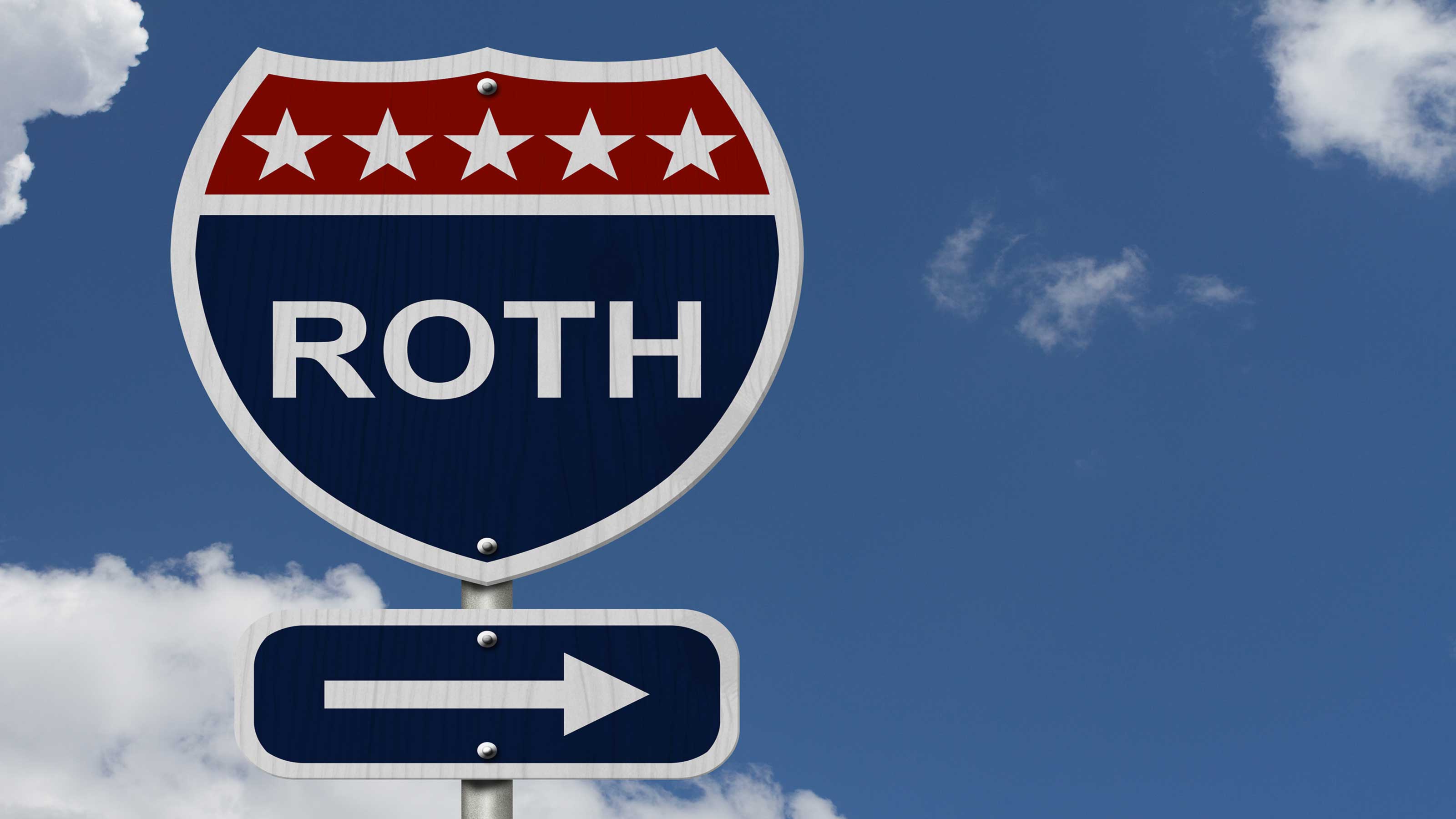Profit and prosper with the best of Kiplinger's advice on investing, taxes, retirement, personal finance and much more. Delivered daily. Enter your email in the box and click Sign Me Up.
You are now subscribed
Your newsletter sign-up was successful
Want to add more newsletters?

Delivered daily
Kiplinger Today
Profit and prosper with the best of Kiplinger's advice on investing, taxes, retirement, personal finance and much more delivered daily. Smart money moves start here.

Sent five days a week
Kiplinger A Step Ahead
Get practical help to make better financial decisions in your everyday life, from spending to savings on top deals.

Delivered daily
Kiplinger Closing Bell
Get today's biggest financial and investing headlines delivered to your inbox every day the U.S. stock market is open.

Sent twice a week
Kiplinger Adviser Intel
Financial pros across the country share best practices and fresh tactics to preserve and grow your wealth.

Delivered weekly
Kiplinger Tax Tips
Trim your federal and state tax bills with practical tax-planning and tax-cutting strategies.

Sent twice a week
Kiplinger Retirement Tips
Your twice-a-week guide to planning and enjoying a financially secure and richly rewarding retirement

Sent bimonthly.
Kiplinger Adviser Angle
Insights for advisers, wealth managers and other financial professionals.

Sent twice a week
Kiplinger Investing Weekly
Your twice-a-week roundup of promising stocks, funds, companies and industries you should consider, ones you should avoid, and why.

Sent weekly for six weeks
Kiplinger Invest for Retirement
Your step-by-step six-part series on how to invest for retirement, from devising a successful strategy to exactly which investments to choose.
Want to make a million dollars? You have two choices: work hard or hardly work.
Personally, the latter sounds good. Sure, you can put your nose to the grindstone, pull long hours or follow that entrepreneurial spirit to build your wealth. But you can also reach your goal without hardly lifting a finger. All it takes is setting up a sweet little retirement account called a Roth IRA and letting it ride.
| Row 0 - Cell 0 | Why You Need a Roth IRA |
| Row 1 - Cell 0 | What It'll Take to Make a Million |
| Row 2 - Cell 0 | A Beginning Investor's Best Friend |
Roth IRAs make a great place to raise your fortune because every single dime you earn is yours -- you don't owe any taxes on it now or ever -- and you can choose the simplicity of investing in a single mutual fund or the diversity of a self-directed brokerage IRA and the full range of investment choices it offers. You can contribute up to $4,000 this year into a Roth. And if you open an account by tax day (April 17 this year), you can contribute up to $4,000 to count for last year, too.
From just $107.88 $24.99 for Kiplinger Personal Finance
Become a smarter, better informed investor. Subscribe from just $107.88 $24.99, plus get up to 4 Special Issues

Sign up for Kiplinger’s Free Newsletters
Profit and prosper with the best of expert advice on investing, taxes, retirement, personal finance and more - straight to your e-mail.
Profit and prosper with the best of expert advice - straight to your e-mail.
There are several advantages to a Roth (learn about them all in Why You Need a Roth IRA). But perhaps the biggest selling point is the tax savings. I know, any sentence with the word "tax" in it usually elicits a yawn from me, too, but bear with me.

If a 25-year-old contributes $4,000 each year to a Roth until he retires and makes an average annual return of only 8% on his investment, he'll have more than $1.1 million saved by the time he retires at age 65. If he had invested the money in a taxable account instead, he'd have only $810,000 if his earnings were taxed at 15%. That's more than one-fourth less money than if he'd invested in the Roth.
How best to take advantage of this savings power? Pick a solid investment to start with, arrange for regular contributions to be automatically withdrawn from your checking account and then sit back to let the power of compound interest drive you down the road to riches.
As with any good thing, there are a few catches. You have to have earned income from a job to invest in a Roth IRA, your income has to fall below a certain level (more on that later), and you can't take out any of your earnings without paying penalties before age 59½, but you can take out your contributions at any time.
Behold, the power
What will it take for you to make your own million? Not as much as you might think. If you're 25, for example, you need only save $158 a month and earn an average annual return of 10% on your investment to reach that magic number by the time you turn 65. (That 10% figure is what stocks have historically averaged over the long term.) That $158 per month is equivalent to $5.27 per day -- about the cost of a fast-food lunch. (See 20 Small Ways to Save Big for ideas of where to find money in your budget to invest.) If you invest the full $4,000 each year allowed in a Roth IRA, you'd reach your goal by age 58 instead. Use our calculator to see what it'll take to become a millionaire. For the tax rates, plug in "0" to mirror the Roth's tax-free status.
The key here is to start as soon as possible. Say a 22-year-old college grad is able to put $300 per month into a Roth IRA earning 10% per year for six years. Then at age 28, she starts a family and decides to stay home with the children full time. She'd have about $30,000 saved up by the time she quit the workforce. But even if she doesn't contribute another cent ever and keeps the money parked in her Roth earning the same return, she could still be a millionaire by the time she turned 65.
Stay-at-home spouses may also qualify for spousal contributions. The husband of the woman in our example above could make contributions on his wife's behalf. If he kicked in only $55 a month to her Roth after she quit her job, her nest egg would grow by another quarter of a million dollars by her 65th birthday.
Starting as early as possible is important for those of you who expect to earn a lot of money later in your career, too. The government allows you to contribute the full $4,000 each year as long as your income falls below $99,000 if you're single, and $156,000 if you're married filing a joint tax return. The contribution limit is then phased out incrementally if you make between $99,000 and $114,000 (single) or $156,000 and $166,000 (married-joint). Make more than those upper limits, and you don't have to cash out the account -- you simply cannot contribute any more money to a Roth IRA.
So, if you expect to breach the income limits as your career progresses, start saving as much in the Roth while you still qualify, even if you can't afford much now. The good thing, though, is the contribution phase-out zones will rise with inflation. So, for example, 20 years from now the phase-out for married couples might be $280,000 to $290,000. If you do top that level, you'll have to look for alternative ways to save -- perhaps even taxable accounts. But the money you put in your Roth in your early years will continue to grow and will serve as a solid tax-free base to your wealth in retirement.
How to get started
A common misconception I hear from young adults is that they think a Roth IRA is a kind of investment. It's not -- it's a kind of account that holds your investments and gives them special treatment. It's merely a classification.
Think of it as using a coupon at a restaurant. You can order anything you want from the menu, you just need to let your waiter know that you've got a $10 off coupon to make sure you get the discount. With a Roth IRA, you can order whatever mutual fund or stock you want, you just need to let the fund company or your broker know that you want it to get the Roth IRA treatment.
I'm a big fan of mutual funds for beginning investors. They make it simple to diversify, so you're not betting the farm on the performance of one stock. Plus, they're simple to use and won't cost you a fortune to get started.
Many funds set low initial investment minimums for IRAs -- say, around $500 to $2,500. But some companies will let you in for even less. T. Rowe Price is one of my favorites. You can pick any of its funds for your Roth IRA and get started investing today for only $50 a month. A few good diversified funds include T. Rowe Price Spectrum Growth, T. Rowe Price Retirement 2040 and T. Rowe Price Equity Market Index. Simply go to the company's Web site and follow the link to open a new mutual fund account. It'll then ask you what type of account you want to set up. Simply click on "Roth IRA," select your fund, and sign up for the "Automatic Asset Builder" program to get the reduced minimum investment perk and to put your Roth on autopilot.
Other mutual fund Web sites make it just as simple to get started with a Roth, so you can pick whatever company and investment you like. (See Kiplinger's favorite 25 mutual funds or buy a copy of our new Mutual Funds 2007 guide. Our online Stock Watch and Fund Watch columns are also great resources for ideas of where to invest.) You simply make a few clicks online and voilà: You're on the road to riches.
Profit and prosper with the best of Kiplinger's advice on investing, taxes, retirement, personal finance and much more. Delivered daily. Enter your email in the box and click Sign Me Up.

-
 Betting on Super Bowl 2026? New IRS Tax Changes Could Cost You
Betting on Super Bowl 2026? New IRS Tax Changes Could Cost YouTaxable Income When Super Bowl LX hype fades, some fans may be surprised to learn that sports betting tax rules have shifted.
-
 How Much It Costs to Host a Super Bowl Party in 2026
How Much It Costs to Host a Super Bowl Party in 2026Hosting a Super Bowl party in 2026 could cost you. Here's a breakdown of food, drink and entertainment costs — plus ways to save.
-
 3 Reasons to Use a 5-Year CD As You Approach Retirement
3 Reasons to Use a 5-Year CD As You Approach RetirementA five-year CD can help you reach other milestones as you approach retirement.
-
 Why You Need a Roth IRA
Why You Need a Roth IRARoth IRAs With this indispensable savings tool, your money grows tax-free, you can invest in almost anything and you get several cool perks.
-
 6 Savings Tips for Millennials Who Want to Retire Rich
6 Savings Tips for Millennials Who Want to Retire Richretirement Take advantage of the decades you have before retirement to establish good savings habits and benefit from the magic of compounding.
-
 The Best Money Advice My Dad Ever Gave Me
The Best Money Advice My Dad Ever Gave Meretirement Papa Rapacon has successfully retired by taking calculated risks and educating himself about finances.
-
 Free Money for Retirement
Free Money for Retirementretirement If your company matches contributions, you’ve got a head start.
-
 10 Financial Commandments for Your 30s
10 Financial Commandments for Your 30spersonal finance After establishing a solid financial foundation in your 20s, use the next decade of your life to keep building and protecting your wealth.
-
 Start Saving Now
Start Saving Nowsavings Get in the habit early, even if it’s only a small amount with each paycheck.
-
 10 Financial Commandments for Your 20s
10 Financial Commandments for Your 20spersonal finance Tend to these tasks now to achieve your financial independence later.
-
 What to Do in Case of Financial Emergency
What to Do in Case of Financial EmergencyBudgeting If you have yet to build up an emergency fund, consider these options to help cover any big, unexpected costs.
